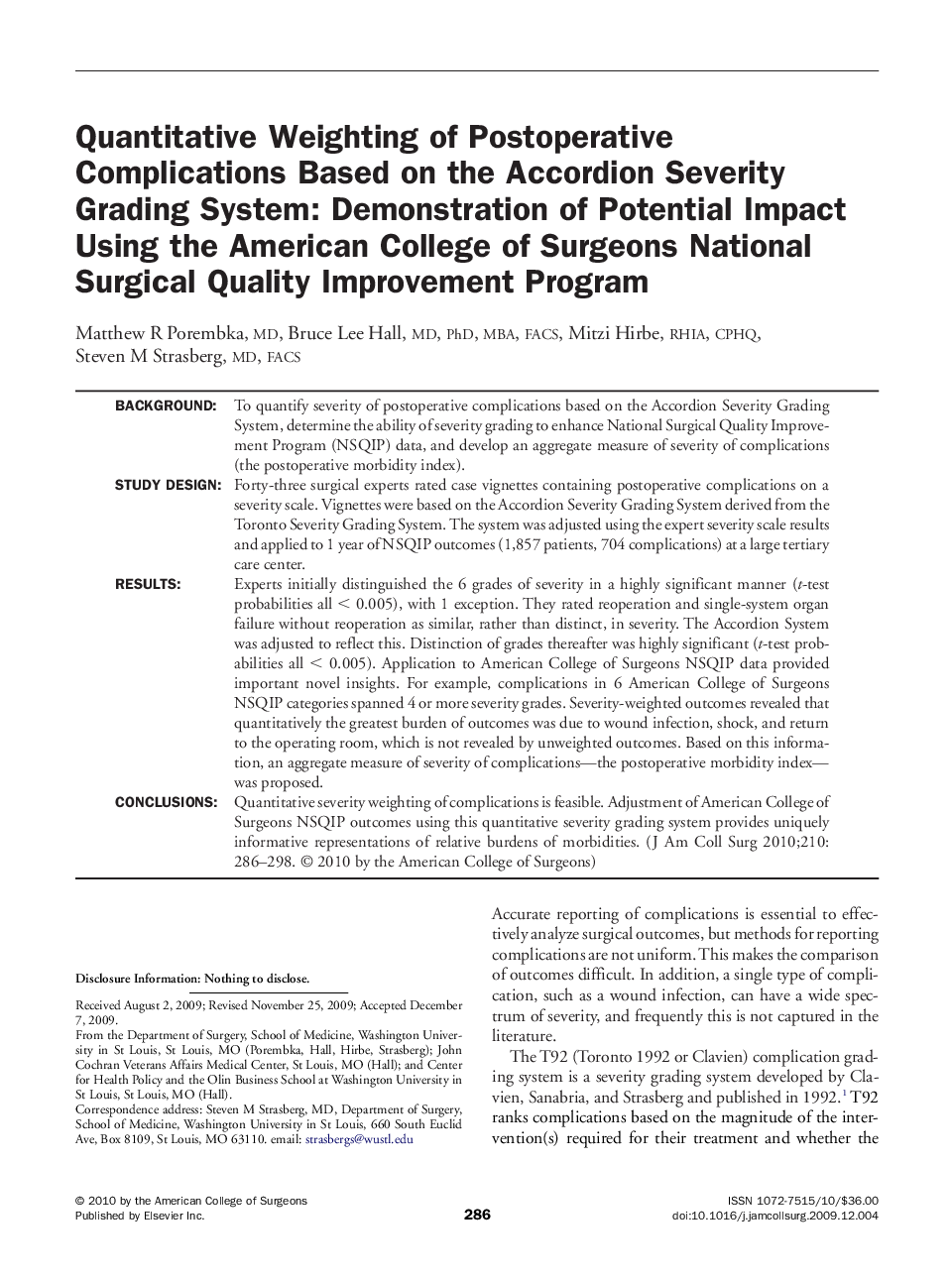| Article ID | Journal | Published Year | Pages | File Type |
|---|---|---|---|---|
| 4294164 | Journal of the American College of Surgeons | 2010 | 13 Pages |
BackgroundTo quantify severity of postoperative complications based on the Accordion Severity Grading System, determine the ability of severity grading to enhance National Surgical Quality Improvement Program (NSQIP) data, and develop an aggregate measure of severity of complications (the postoperative morbidity index).Study DesignForty-three surgical experts rated case vignettes containing postoperative complications on a severity scale. Vignettes were based on the Accordion Severity Grading System derived from the Toronto Severity Grading System. The system was adjusted using the expert severity scale results and applied to 1 year of NSQIP outcomes (1,857 patients, 704 complications) at a large tertiary care center.ResultsExperts initially distinguished the 6 grades of severity in a highly significant manner (t-test probabilities all < 0.005), with 1 exception. They rated reoperation and single-system organ failure without reoperation as similar, rather than distinct, in severity. The Accordion System was adjusted to reflect this. Distinction of grades thereafter was highly significant (t-test probabilities all < 0.005). Application to American College of Surgeons NSQIP data provided important novel insights. For example, complications in 6 American College of Surgeons NSQIP categories spanned 4 or more severity grades. Severity-weighted outcomes revealed that quantitatively the greatest burden of outcomes was due to wound infection, shock, and return to the operating room, which is not revealed by unweighted outcomes. Based on this information, an aggregate measure of severity of complications—the postoperative morbidity index—was proposed.ConclusionsQuantitative severity weighting of complications is feasible. Adjustment of American College of Surgeons NSQIP outcomes using this quantitative severity grading system provides uniquely informative representations of relative burdens of morbidities.
